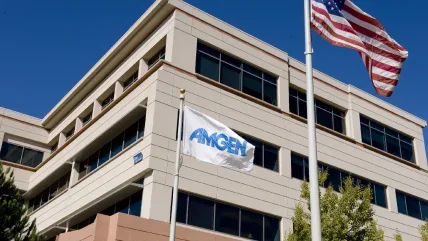
US-based Amgen has received the UK’s Medicines and Healthcare Products Regulatory Agency (MHRA) conditional marketing authorisation for Imdylltra (tarlatamab).
Imdylltra (tarlatamab) is a bispecific DLL3-directed CD3 T-cell engager that binds to both DLL3 and CD3, which are expressed on the surface of tumour cells and T cells, respectively.
The drug triggers T-cell activation, production of inflammatory cytokines, and release of cytotoxic proteins, which leads to the redirected lysis of tumour cells.
The British regulator indicated Imdylltra for adult patients with extensive-stage small-cell lung cancer (ES-SCLC) with disease progression after at least two prior lines of therapy.
Amgen UK and Ireland executive medical director Tony Patrikios said: “The MHRA’s granting of a conditional marketing authorisation for tarlatamab is a significant step forward for people living with small cell lung cancer.
“More than 34,000 people die from lung cancer in the UK each year. There is a vital need for novel treatments, particularly for the extensive stage of small cell lung cancer, where outcomes are especially poor.
“This licence brings us one step closer to offering a new treatment option to eligible patients.”
The MHRA authorisation is based on results from Phase 2 of DeLLphi-301, an open-label, multicentre study in patients with ES-SCLC who had failed prior lines of treatment.
In the Phase 2 study, treatment with Imdylltra 10mg every two weeks showed an objective response rate (ORR) of 41% and a median duration of response (DoR) of 9.7 months.
The most common side effects include cytokine release syndrome, pyrexia, dysgeusia, decreased appetite, constipation, fatigue, anaemia, and asthenia, said the US drugmaker,
Newcastle University precision oncology and honorary consultant medical oncologist professor Alastair Greystoke said: “Extensive-stage small cell lung cancer is an extremely difficult cancer to treat.
“While initial response rates to current treatment of chemotherapy, with the addition of radio- and immunotherapy, are high, duration of response is often short.”






